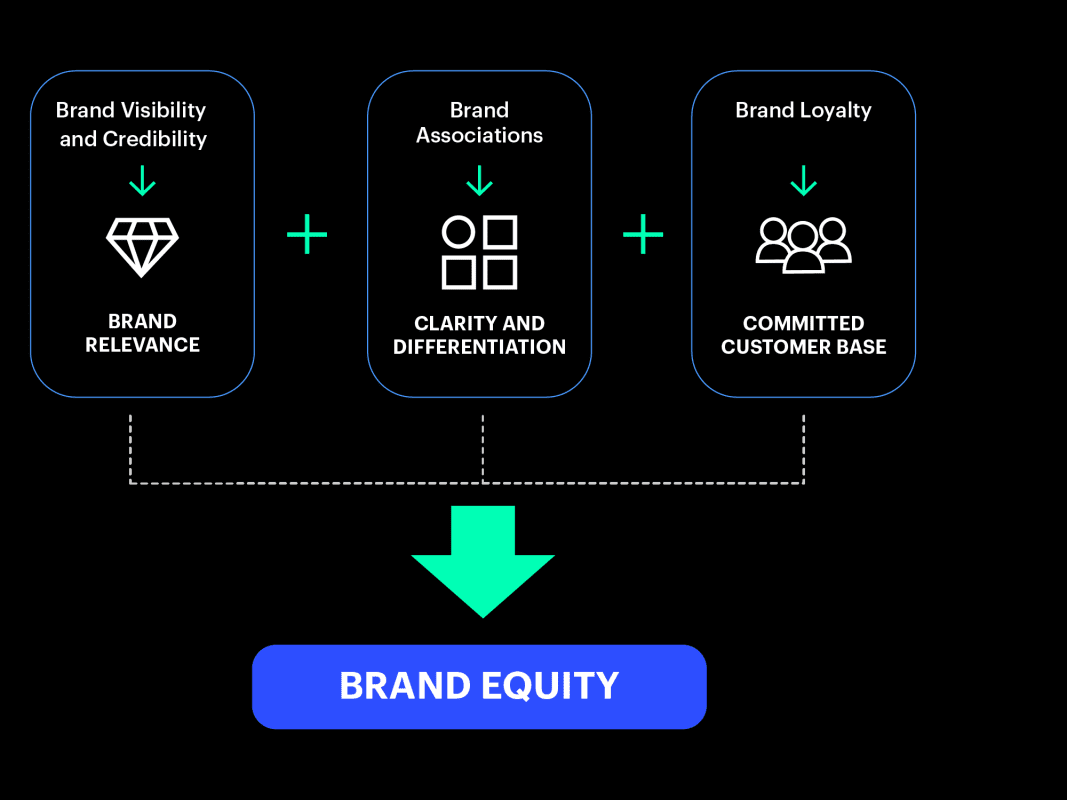
Aaker on Brands Insights from David Aaker Prophet
The Aaker Model includes four different brand topics: awareness, loyalty, perceived quality and brand associations. These different topics give value to different types of brands. Now that you have an idea of what the model is, let's take a look at why it's so important. What makes the Aaker Model so valuable?
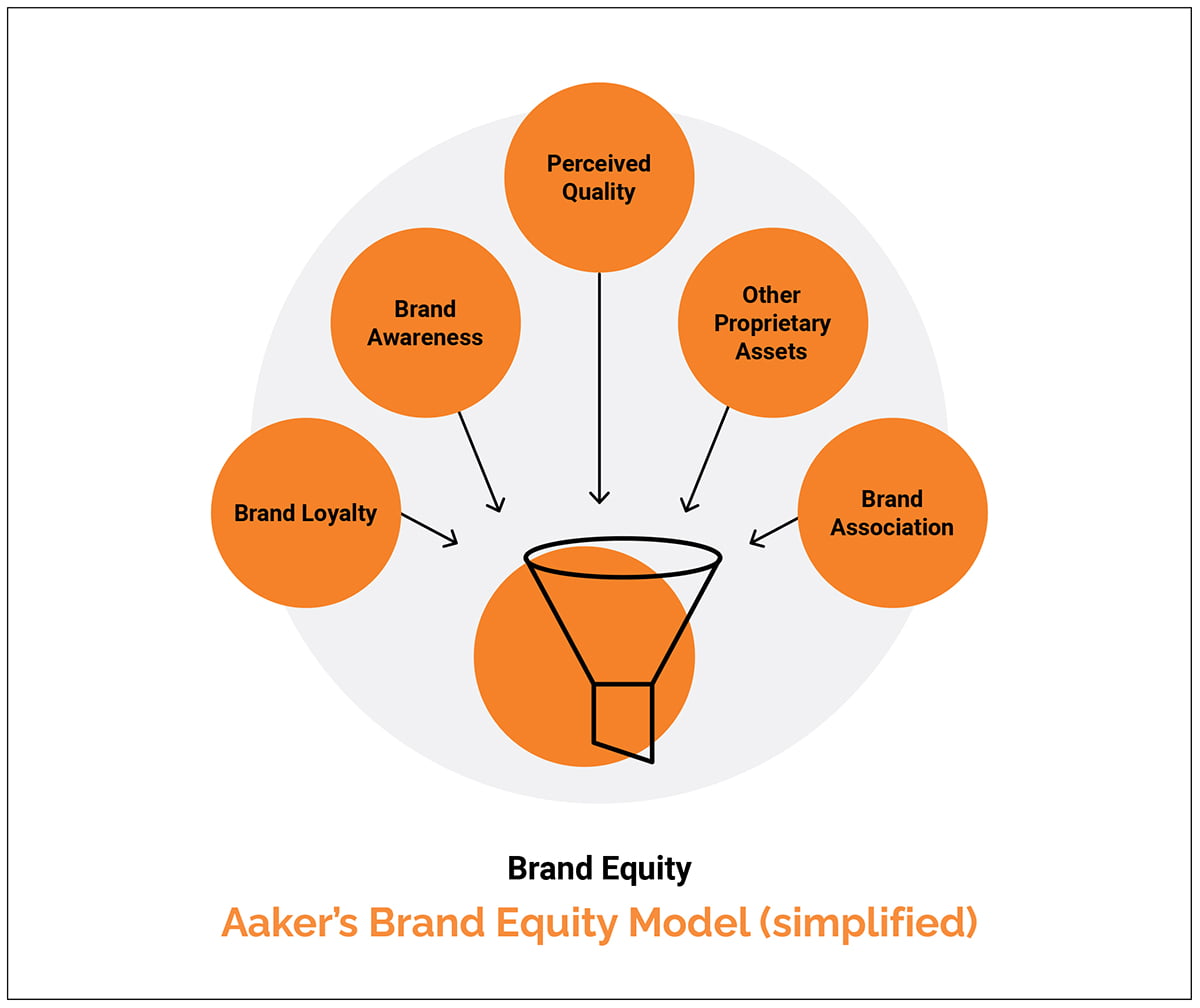
What is Brand Equity? Fresco Creative
The Aaker Brand Equity Model, developed by David Aaker, a renowned marketing scholar and author, is a comprehensive framework that breaks down brand equity into five key dimensions. These dimensions serve as building blocks for developing and nurturing a strong brand. Understanding Brand Equity Before we dive into the Aaker Brand Equity Model, it's essential. Aaker Brand Equity Model Read.
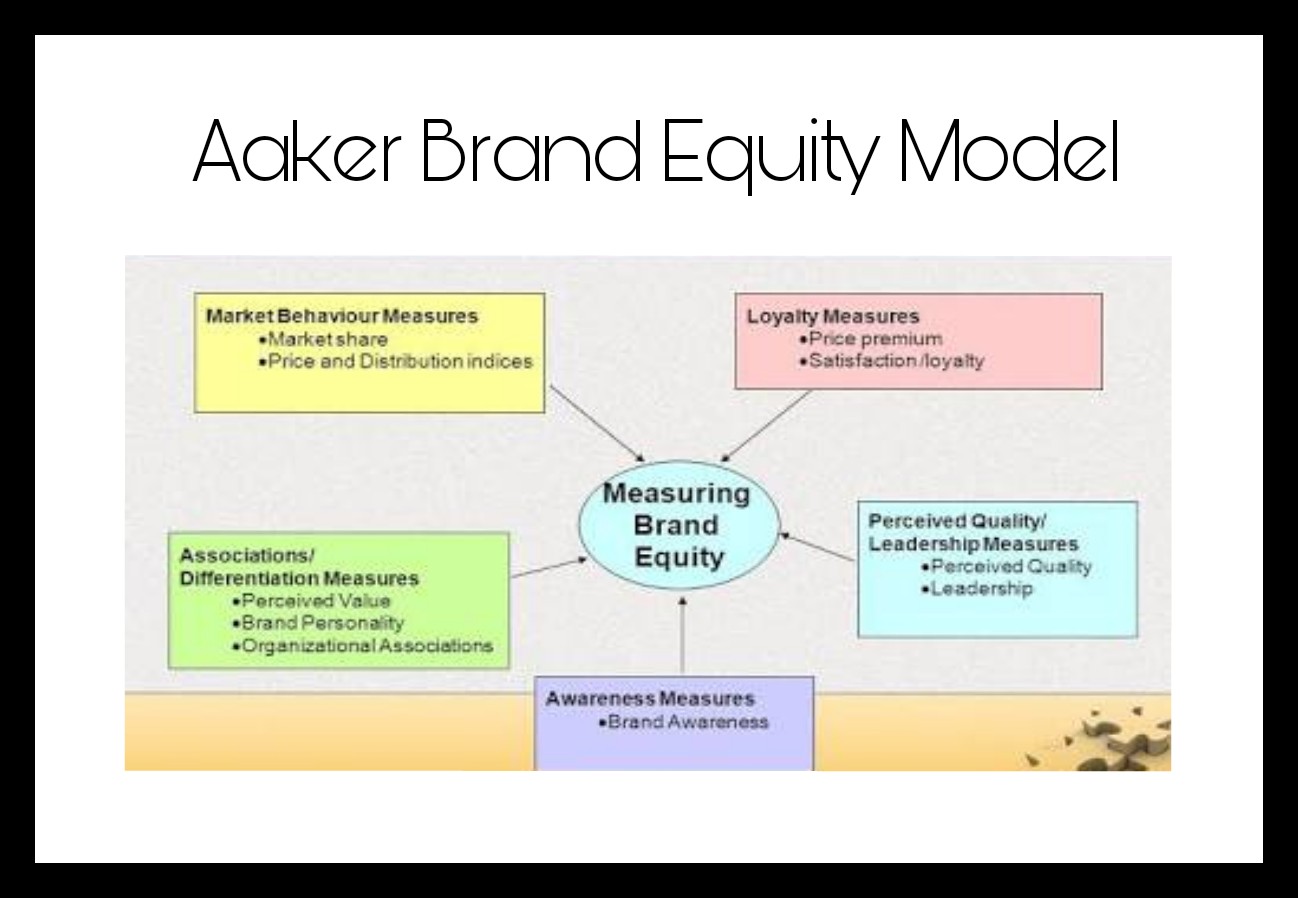
Aaker Brand Equity Model
Brand Equity Model. To measure the power of the brand (brand equity) both Kelvin Lane Keller and David Aaker proposed different brand equity models. David Aaker's brand equity model is based on the 5 brand equity components namely Brand Loyalty, Brand Awareness, Perceived Quality, Brand Associations, and Proprietary Assets that have been.
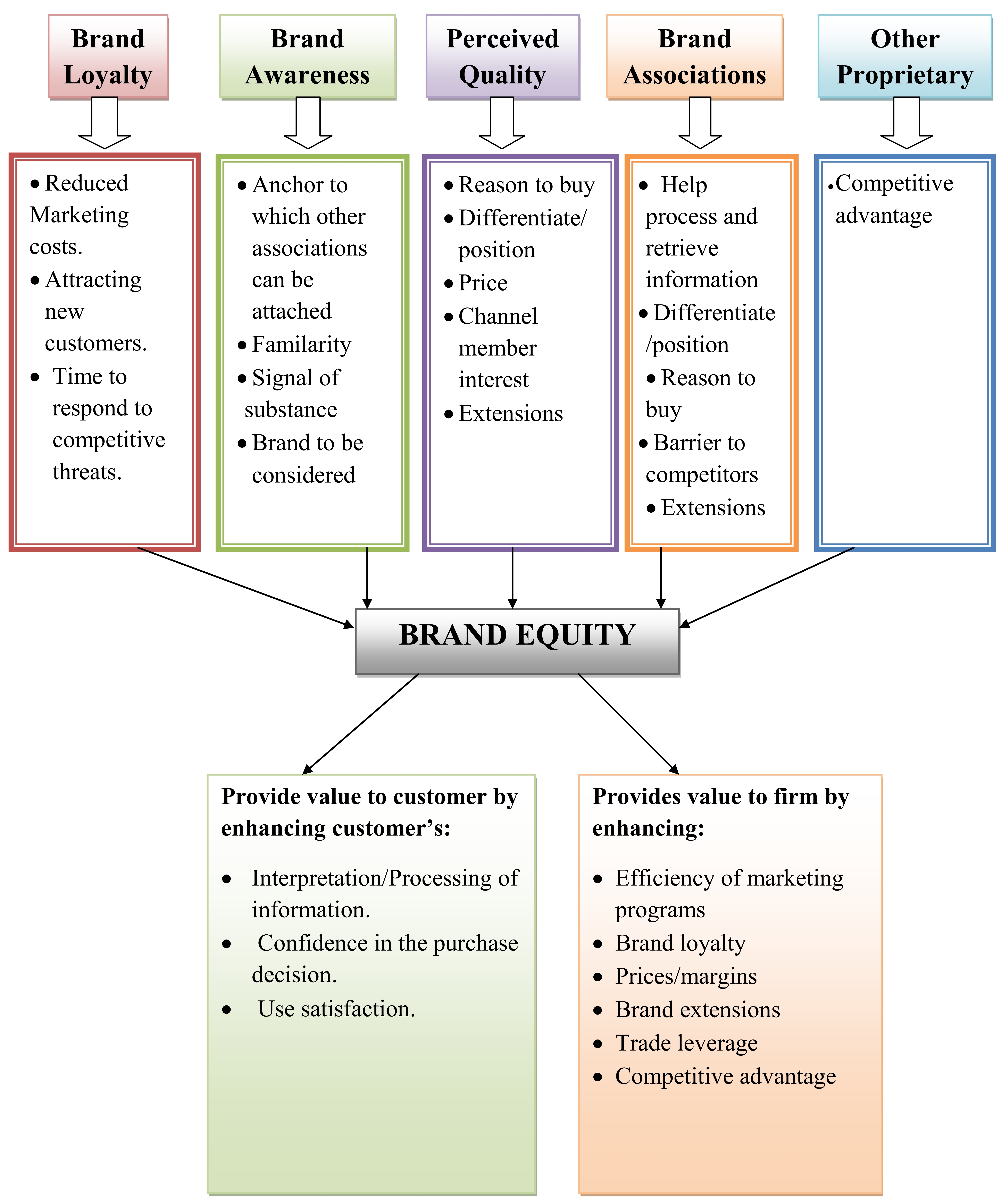
Aaker’s Brand Equity Model Service Marketing and Brand Management Simplynotes
What does Aaker's brand equity model look like? First, let's discuss how Aaker's brand equity model is connected with brand identity. This model explains how there are four different ways your company can look at its brand: as a product, person, organization, or symbol.

Aaker's brand equity model Source Aaker (1991 270) Download Scientific Diagram
Aaker's brand equity model explains brand equity as a mix of brand awareness, loyalty, and quality as perceived by the customer. The Aaker brand model was introduced by David Aaker. a professor from the University of California.

Aaker brand equity model برند ابات
Aaker's Brand Equity model was developed by Professor David Aaker of the University of California. His model viewed the brand equity model as a combination of brand awareness, brand loyalty and brand associations, which then combines with each other to finally offer the value provided by a product or service.

Aaker brand equity model, Aaker brand equity model, aaker brand equity, aaker brand identity
What Is Brand Equity? Understanding Brand Equity Components Of Brand Equity #1 - Consumer Perception #2 - Positive Effects #3 - Negative Effects #4 - Resulting Value Models Of Brand Equity #1 - David Aaker Model #2 - Keller Brand Equity Model Brand Equity Practical Examples Example #1 Example #2 Elements Of Brand Equity

Aaker's Brand Equity Model 2 Download Scientific Diagram
The Aaker Brand Equity Model is one of several ideas regarding how marketers might identify, assess, and improve a company's brand. The notion was first suggested in the 1990s by David Aaker, a former lecturer at the University of California, Berkeley.

Brand Equity How to Encourage Customers to Trust Your Brand
Brand loyalty is brand's currency as defined in Aaker Model of Brand Equity. Higher loyalty helps firms to reduce marketing costs. Also, loyalty is something which cannot be copied overnight by competition and therefore gives time to the firm to respond to any move by competitors. Brand Awareness. This is the starting point of build brand.
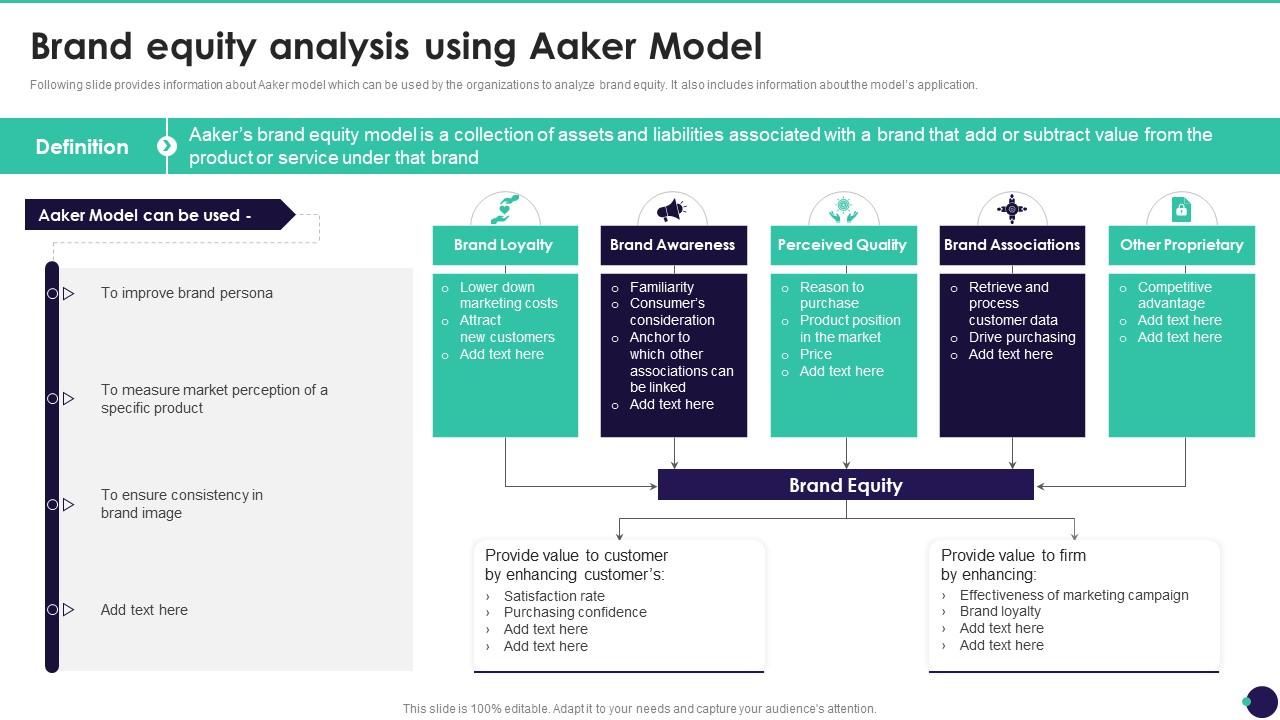
Brand Equity Analysis Using Aaker Model Brand Value Measurement Guide
Attaining brand equity is the holy grail for an organisation's branding team. This can be tackled in various ways, including using two models developed by brand management gurus, Kevin Lane Keller and David Aaker. We take a look at these two brand equity models. Keller's Customer-Based Brand Equity (CBBE) model

3. The Brand Loyalty Pyramid (Aaker, 1991, p. 40) Download Scientific Diagram
While one school of thought measures brand equity as the additional preference a consumer has for a branded product over a similar no-name product, another school of thought led by Aaker defines it in terms of a set of assets, popularly called the sources of brand equity.
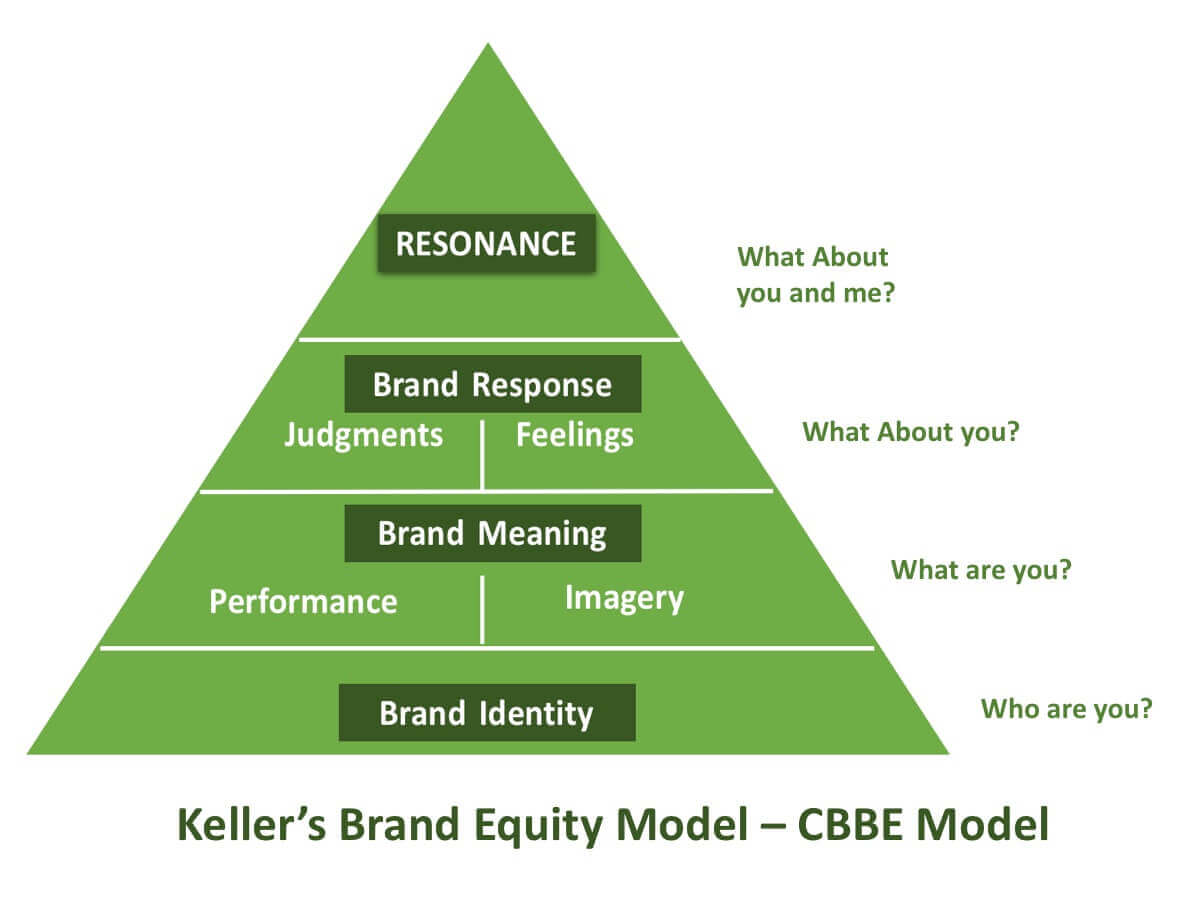
CustomerBased Brand Equity Models Keller vs. Aaker
Aaker defines brand equity as a set of five categories of brand assets and liabilities linked to a brand, its name and its symbol. These can add to or subtract from the value that a firm's product or service gives its customers, providing various benefits and value.

Valuing Brand And Its Equity Methods And Processes Brand Equity Analysis Using Aaker Model
Customer-based brand equity models: Keller vs. Aaker Free eBook: The ultimate guide to building a world-class brand tracker Learn how customer-based brand equity (CBBE) can be used to show how a brand's success can be directly attributed to customers' attitudes towards it.

David Aaker's Brand Vision Model and how it works, part one How Brands Are Built
Significant of them are Aaker's Brand Equity Model , Keller's Customer-Based Brand Equity Model (CBBE) , and Kapferer's Brand Platform . Brand equity is created by the perfect blend of market mix elements, which work through mediating variables to create brand equity as an outcome variable. Within these broad segments exist the specific.

Aaker Model of Brand Equity YouTube
Aaker's Brand Equity Model consists of five key components: brand awareness, brand loyalty, perceived quality, brand associations, and proprietary assets. These components help assess a brand's equity by focusing on its assets and liabilities. Brand awareness refers to customers' recognition and recall level for a brand.
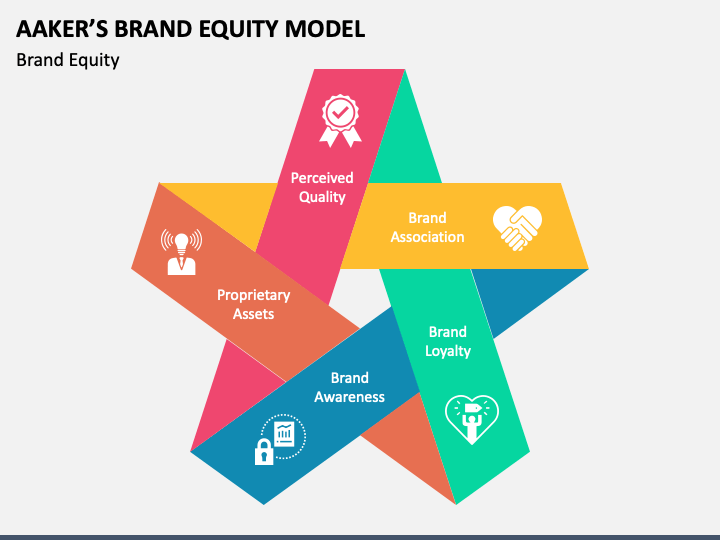
Aaker's Brand Equity Model PowerPoint Template and Google Slides Theme
Aaker's Brand Equity model Aniruddha Banerjee See Full PDF Download PDF Related Papers AN ANALYSIS REGARDING DESCRIPTIVE DIMENSIONS OF BRAND EQUITY Jamshed Bashir Download Free PDF View PDF Marketing Intelligence & Planning Determinants of the brand equity : A verification approach in the beverage industry in Turkey 2005 • Keshab Pudasaini